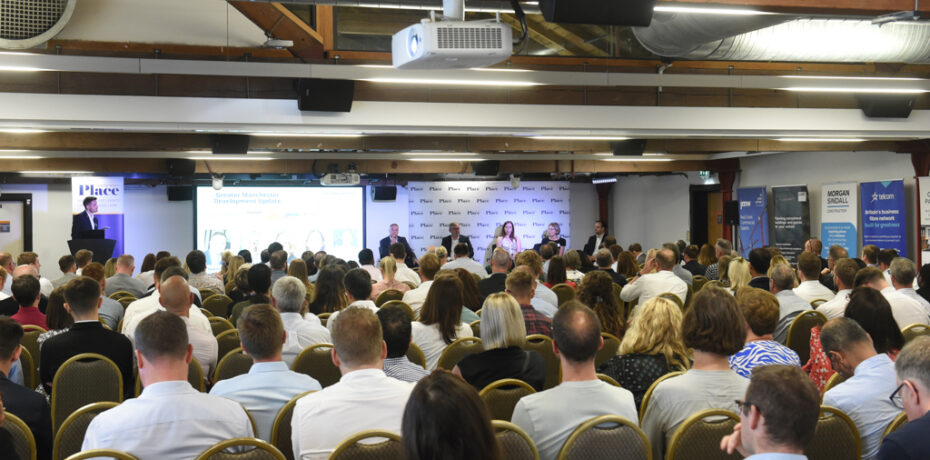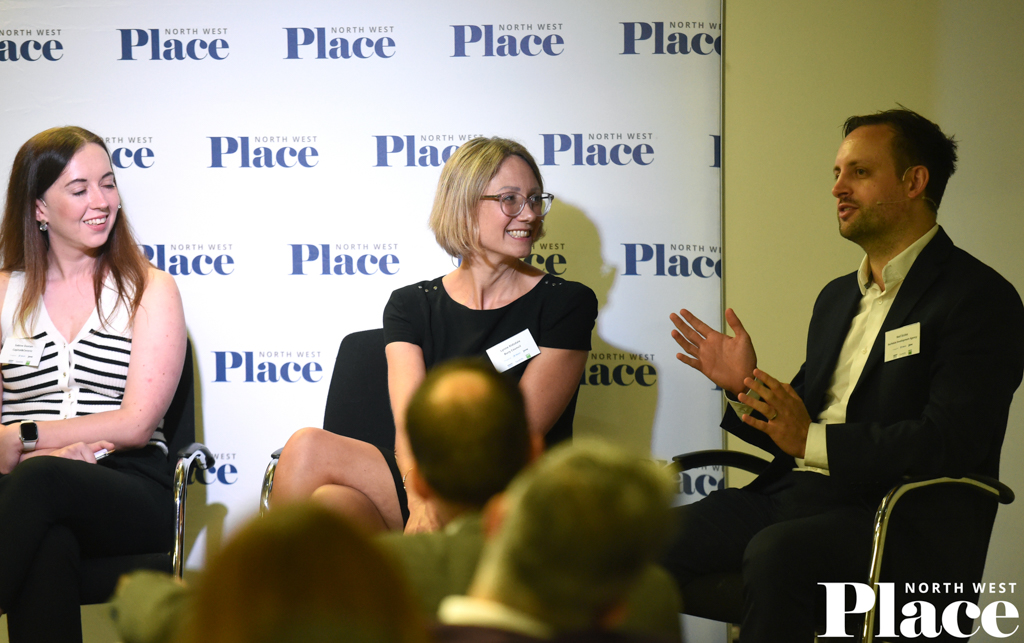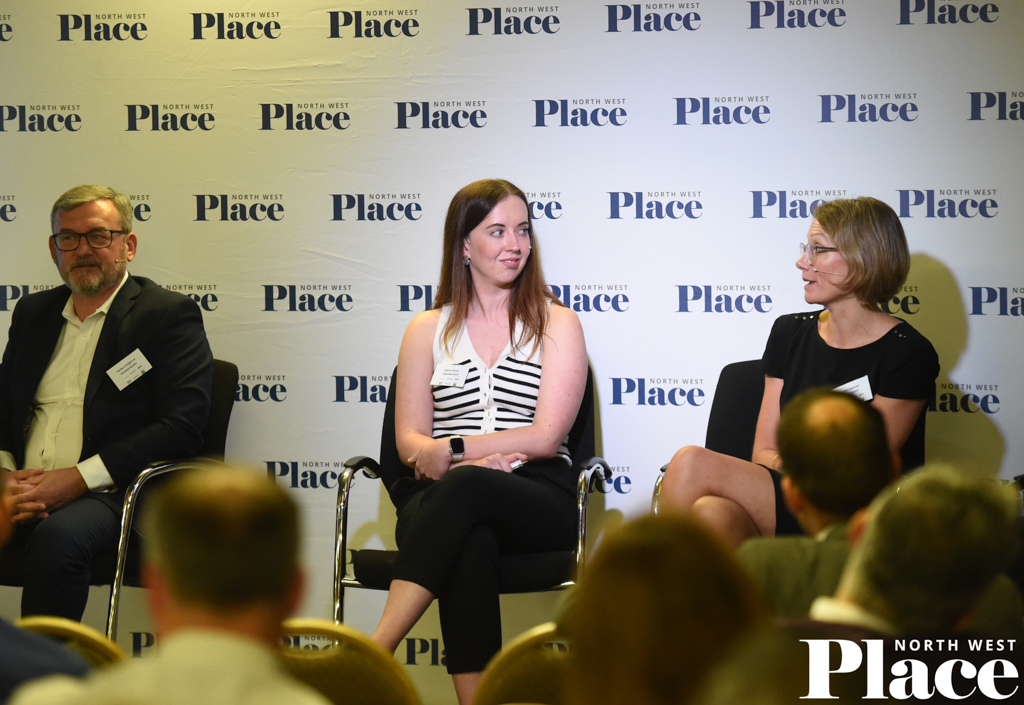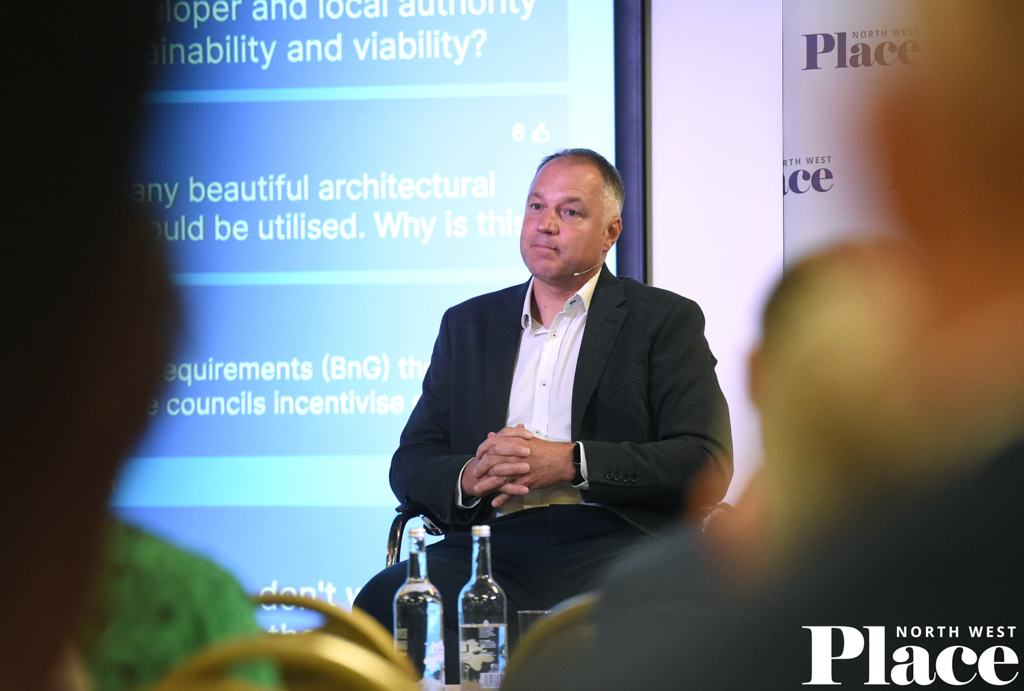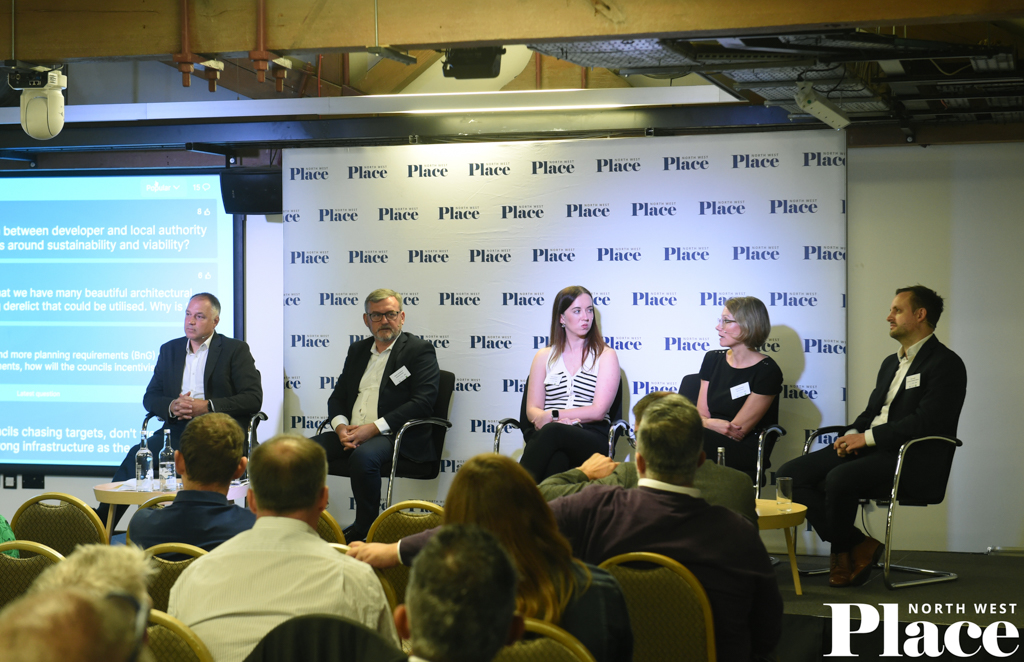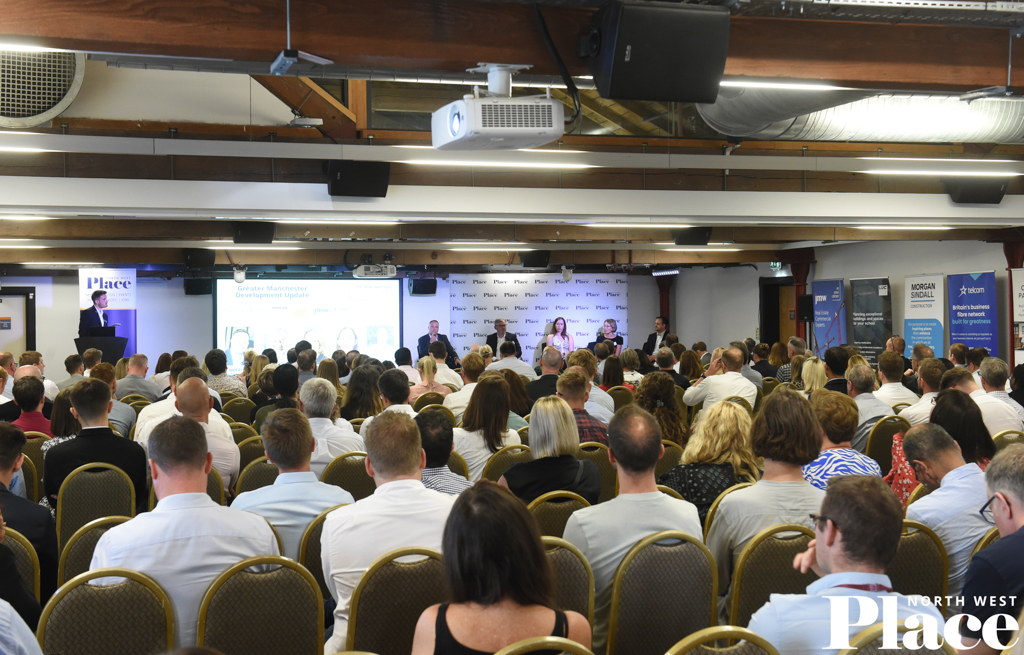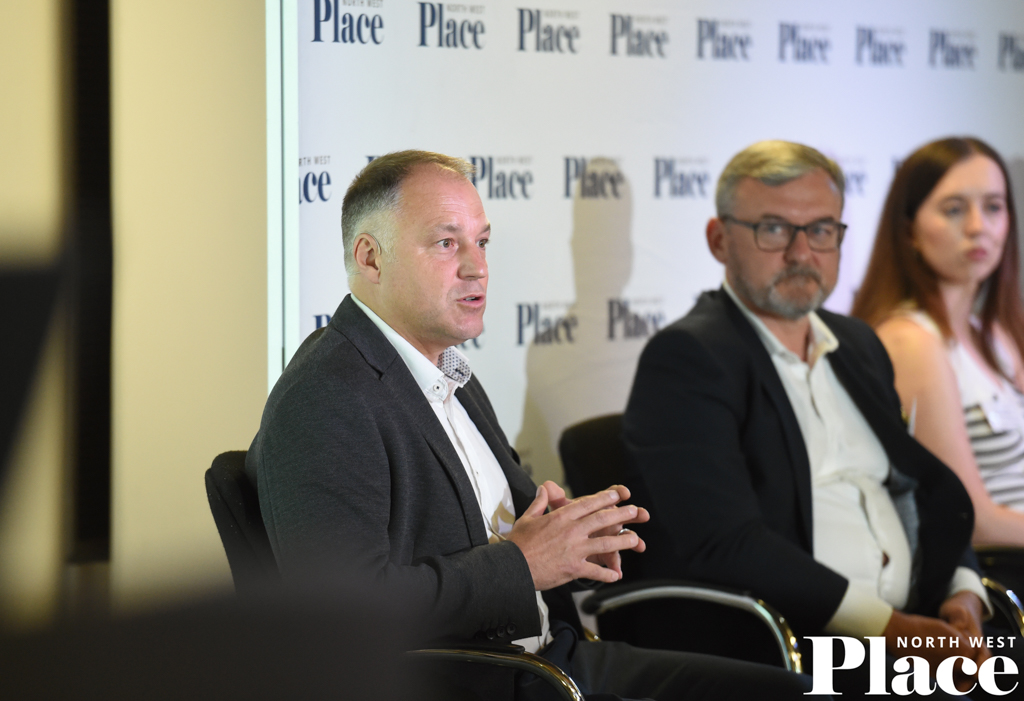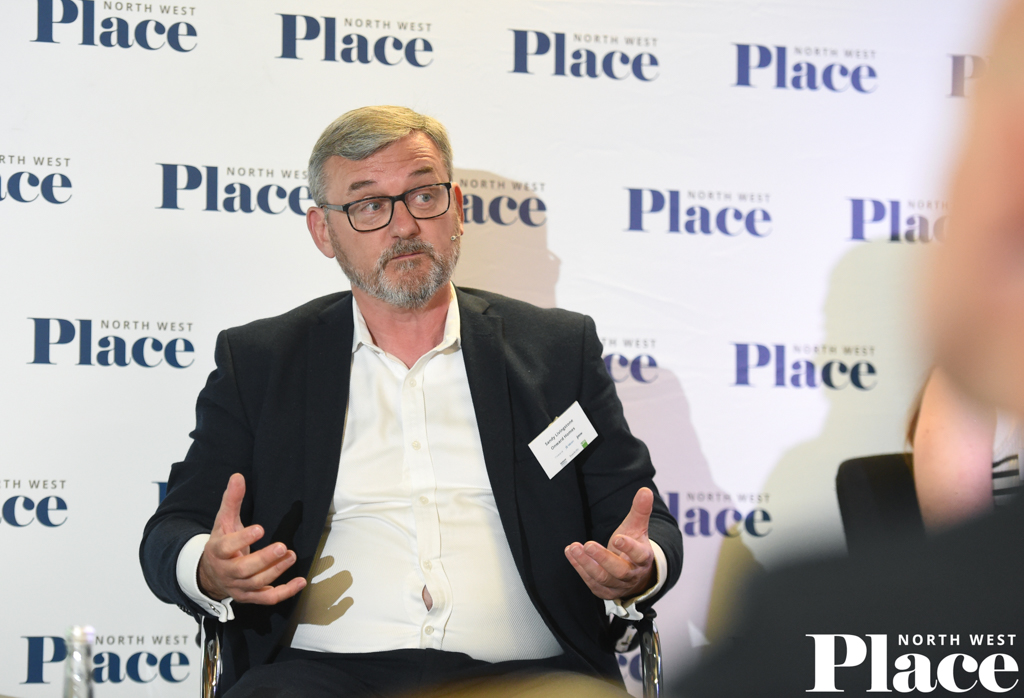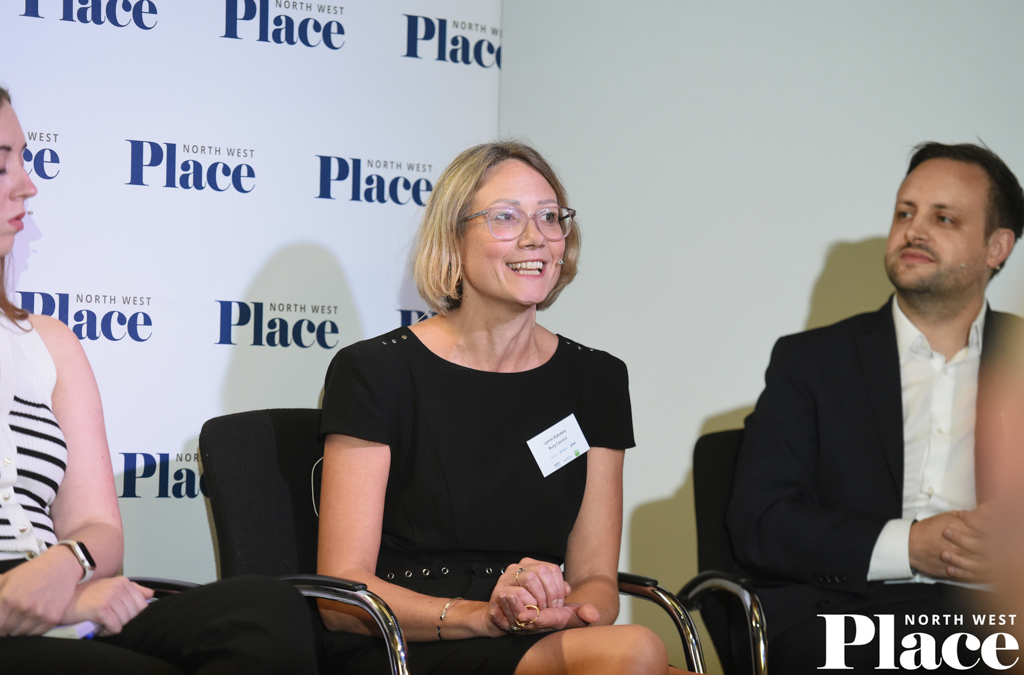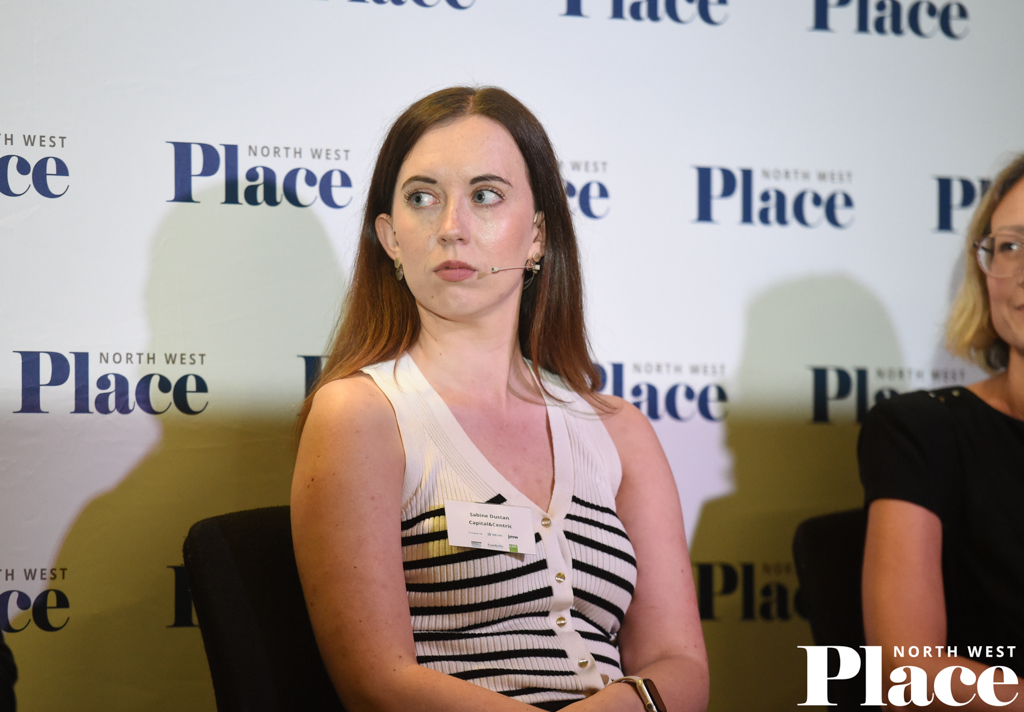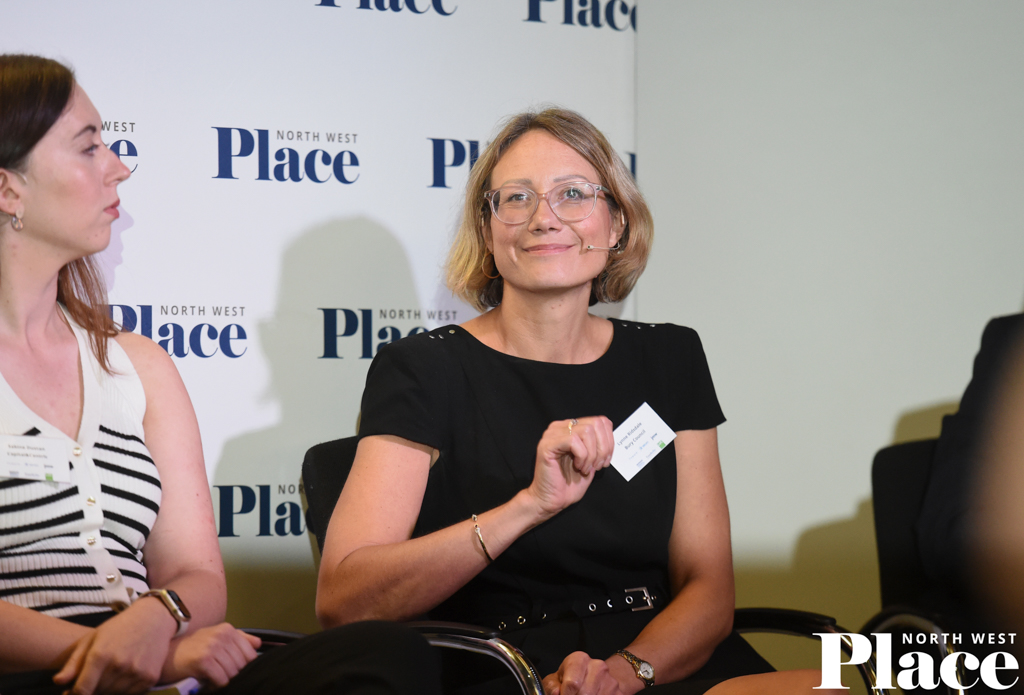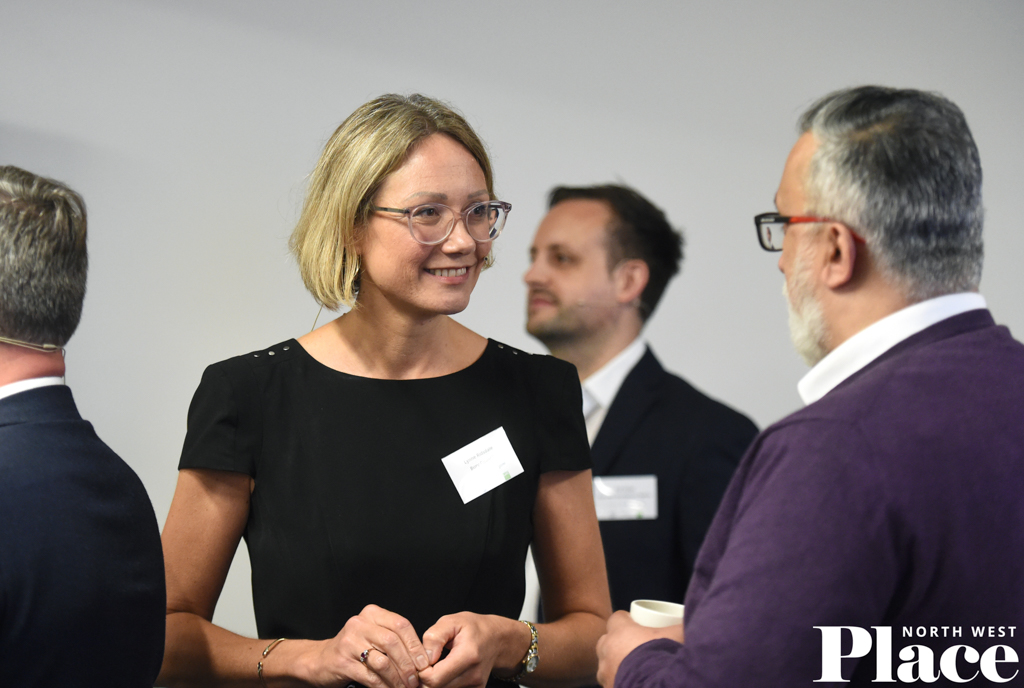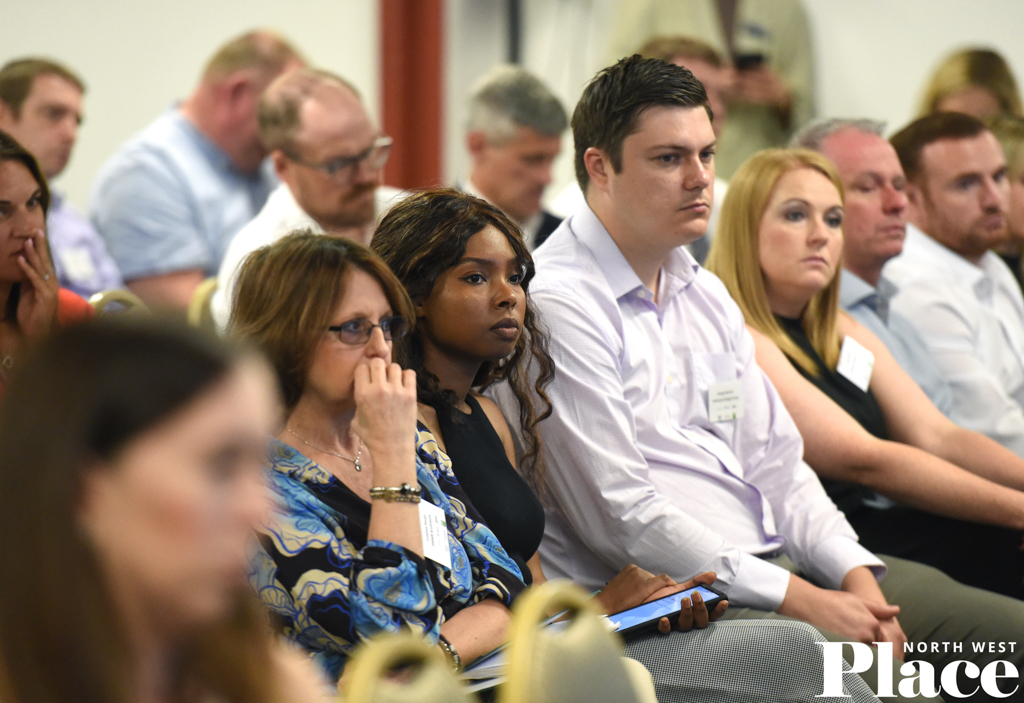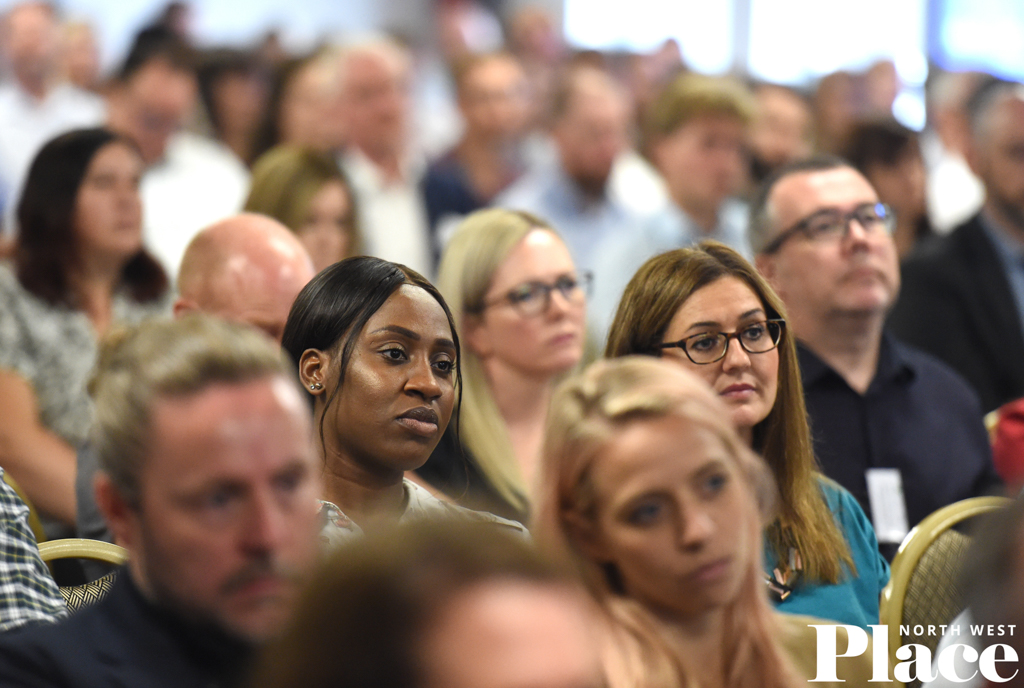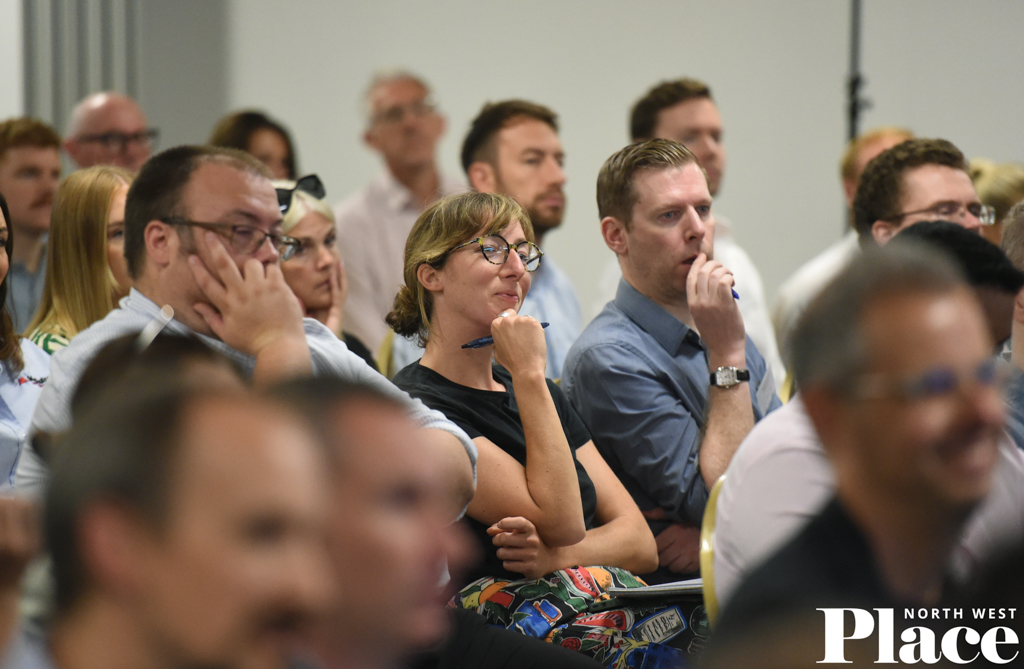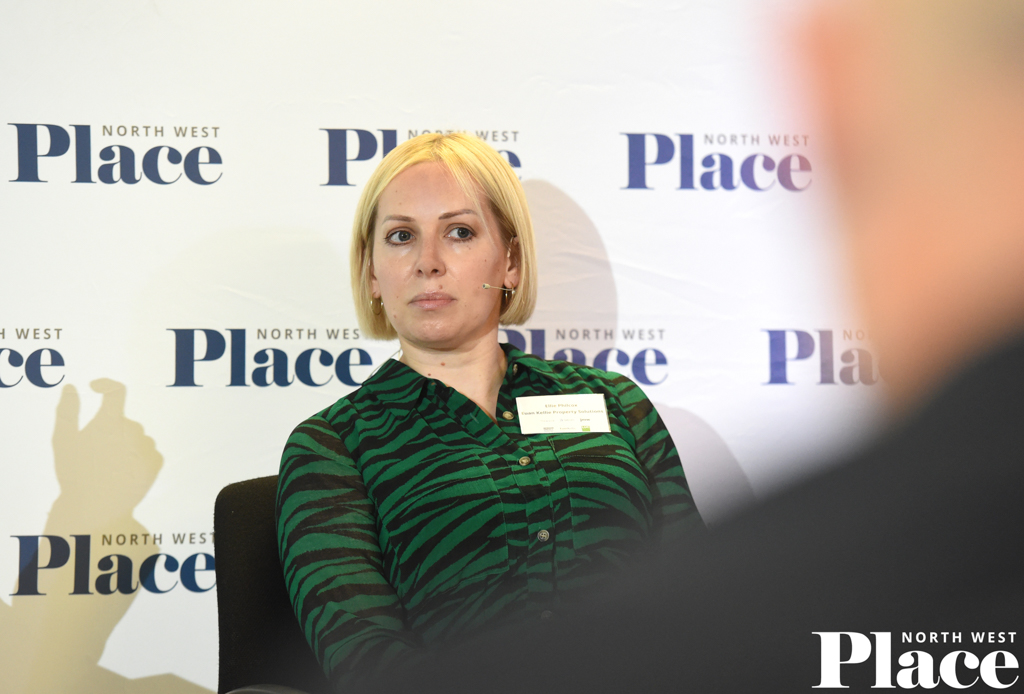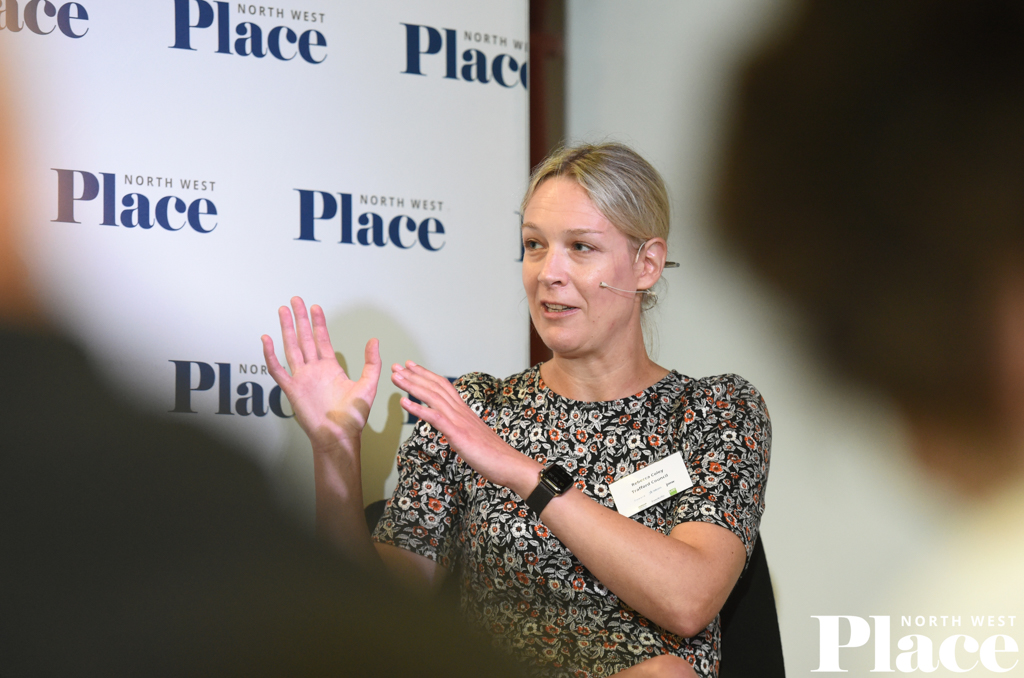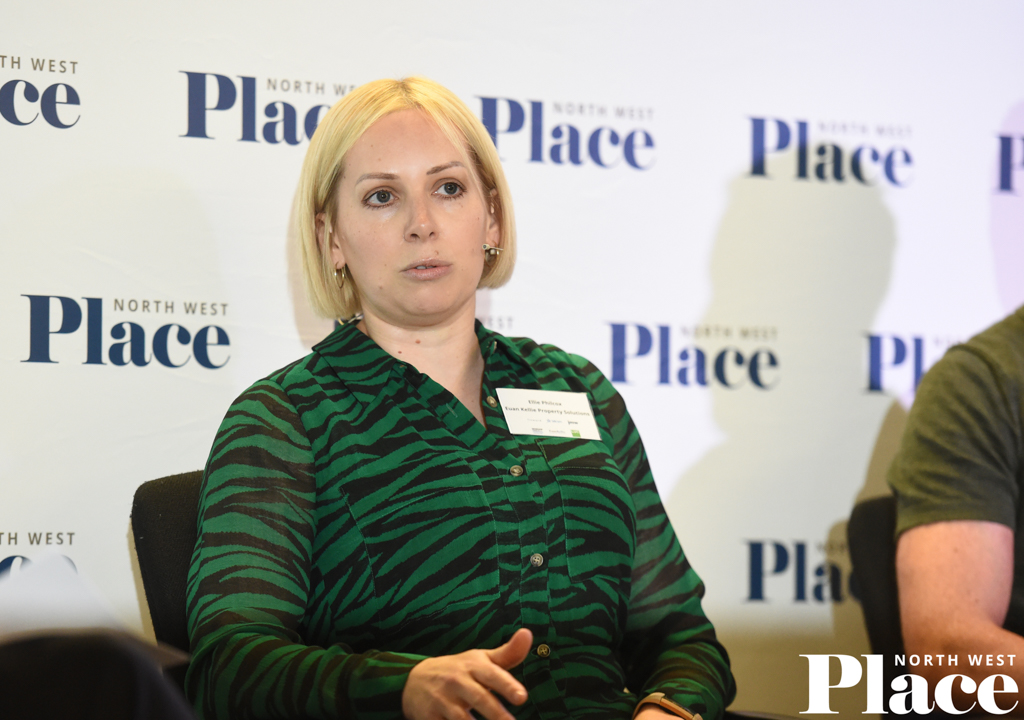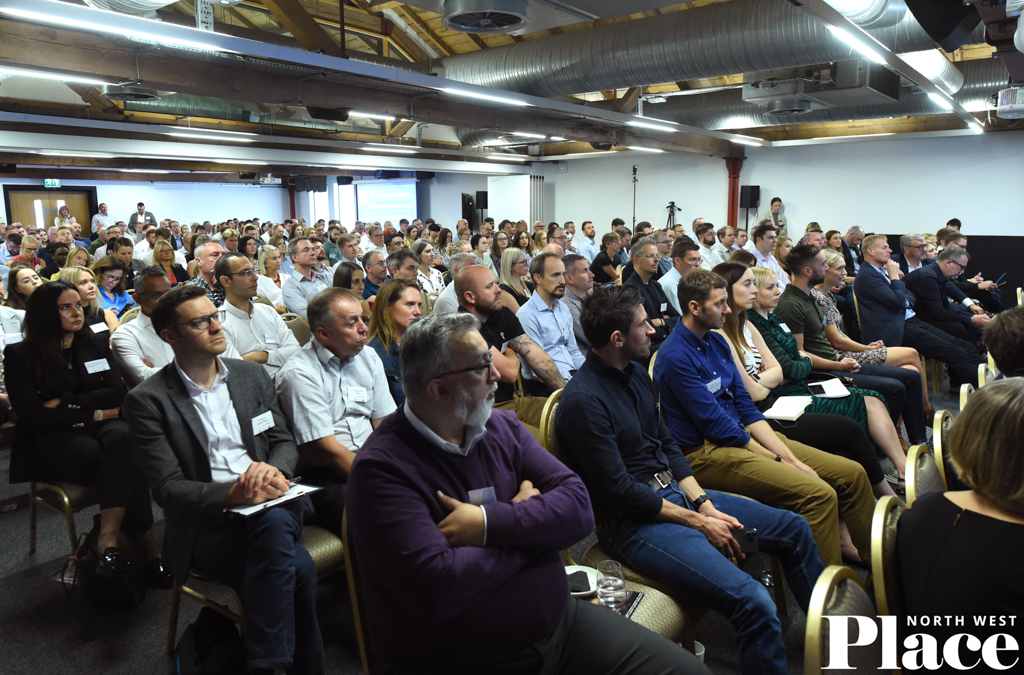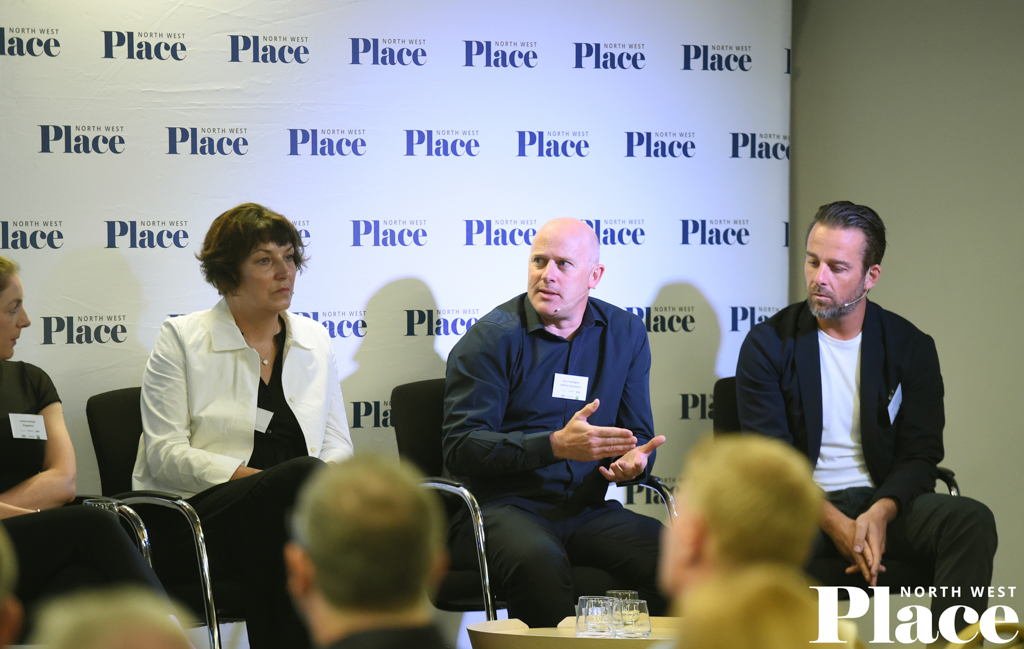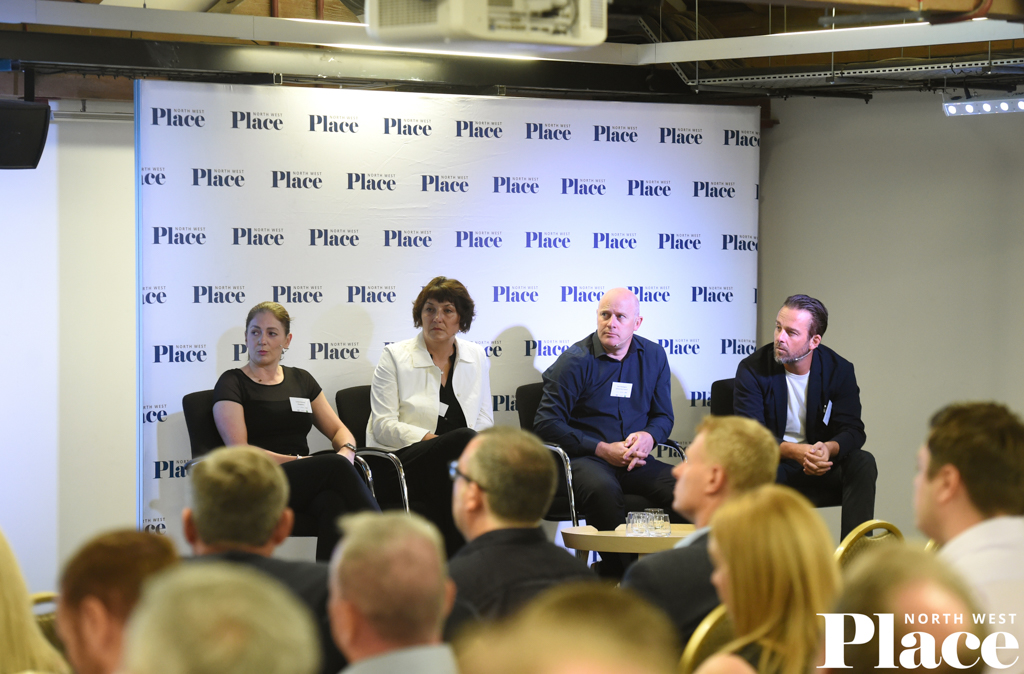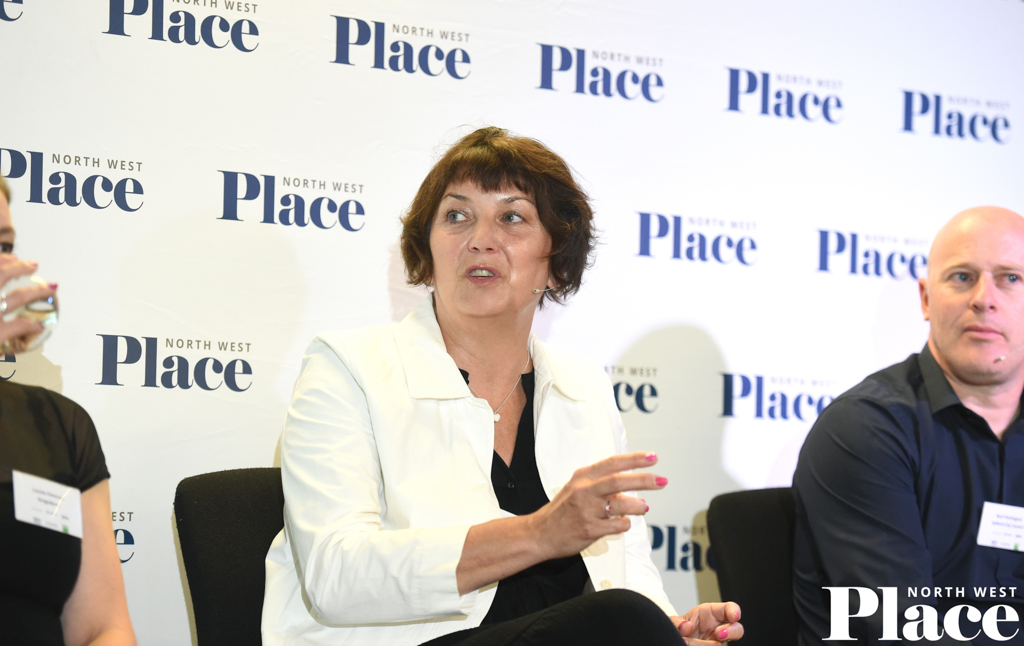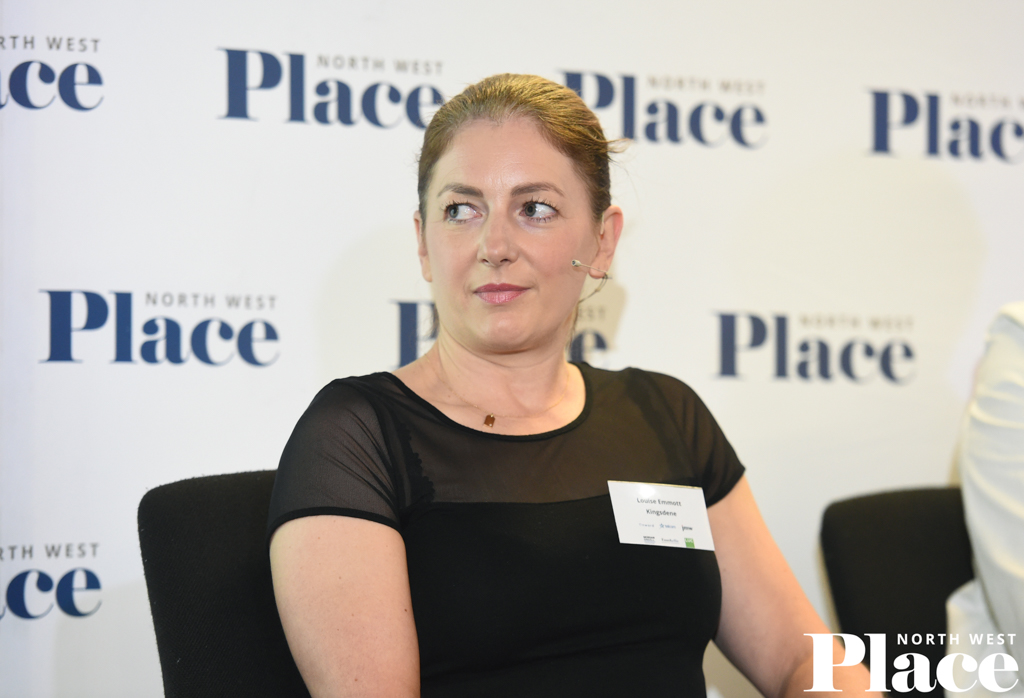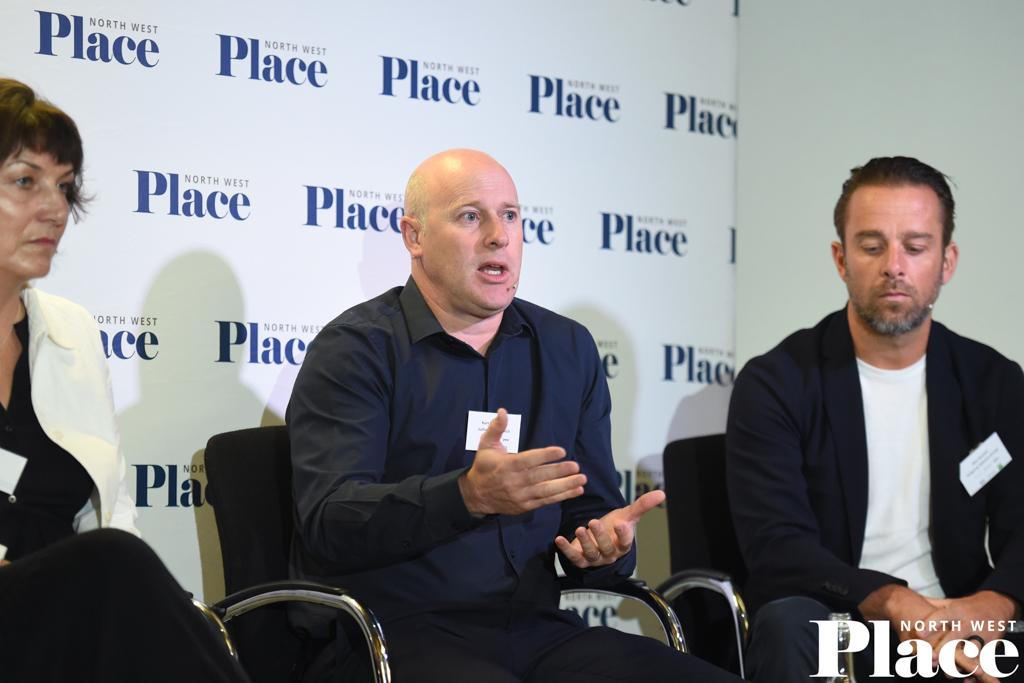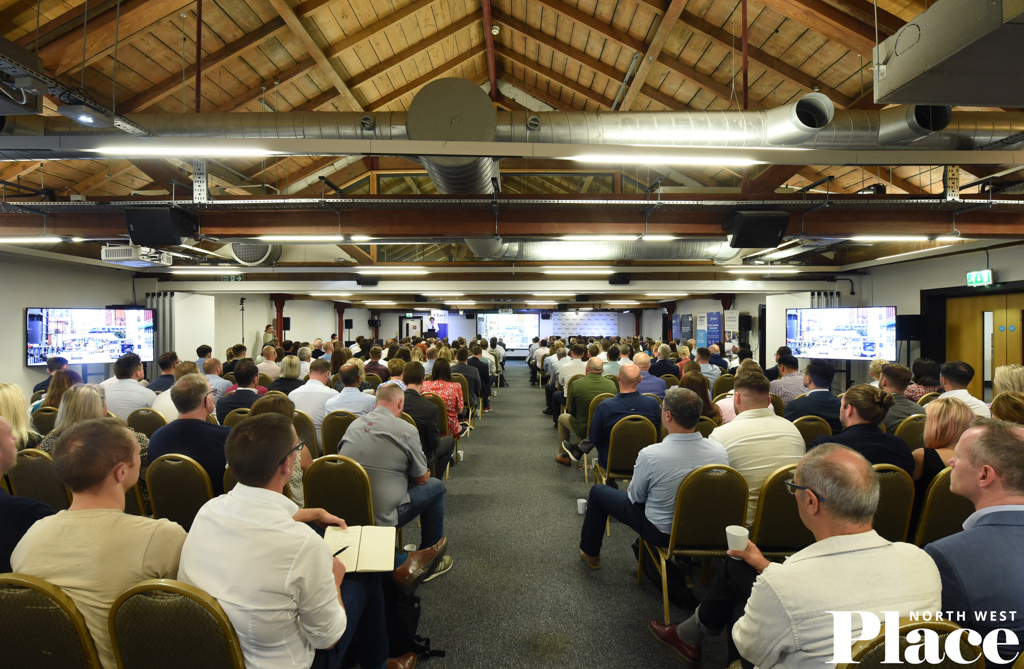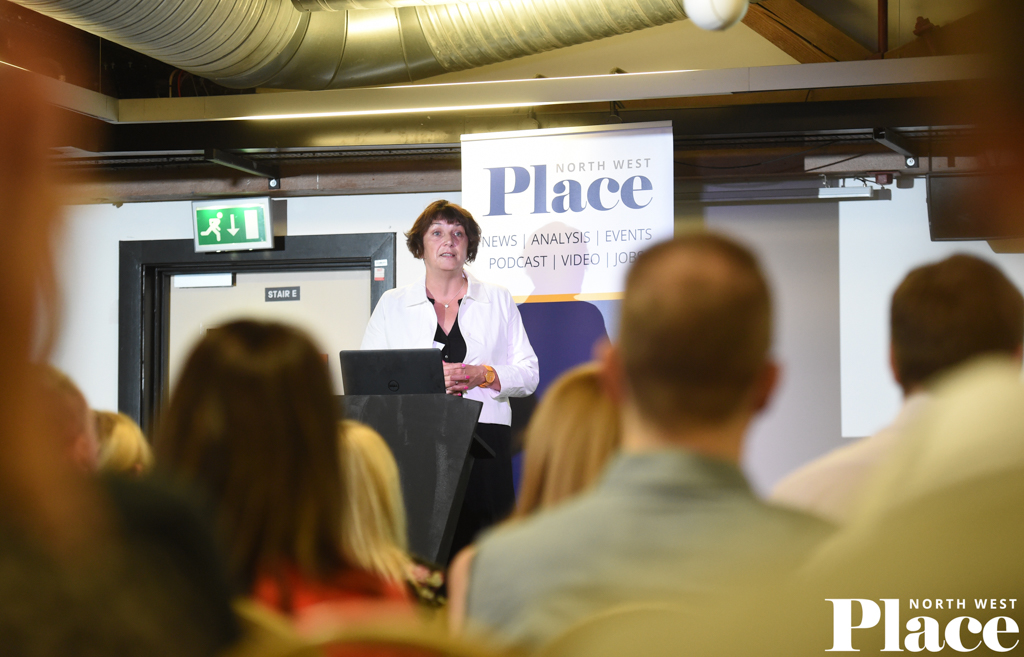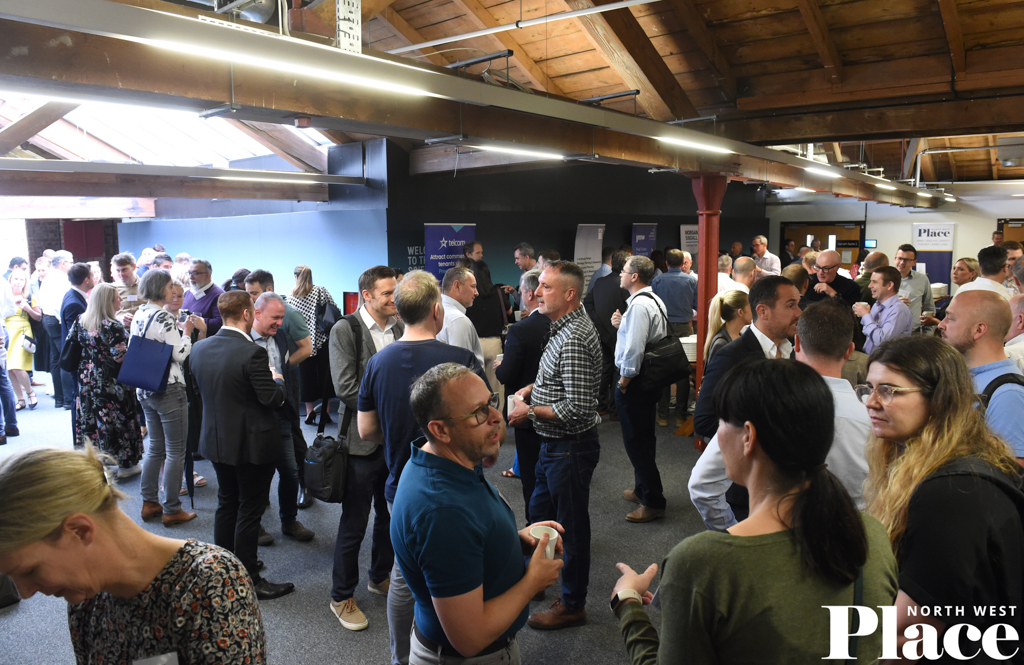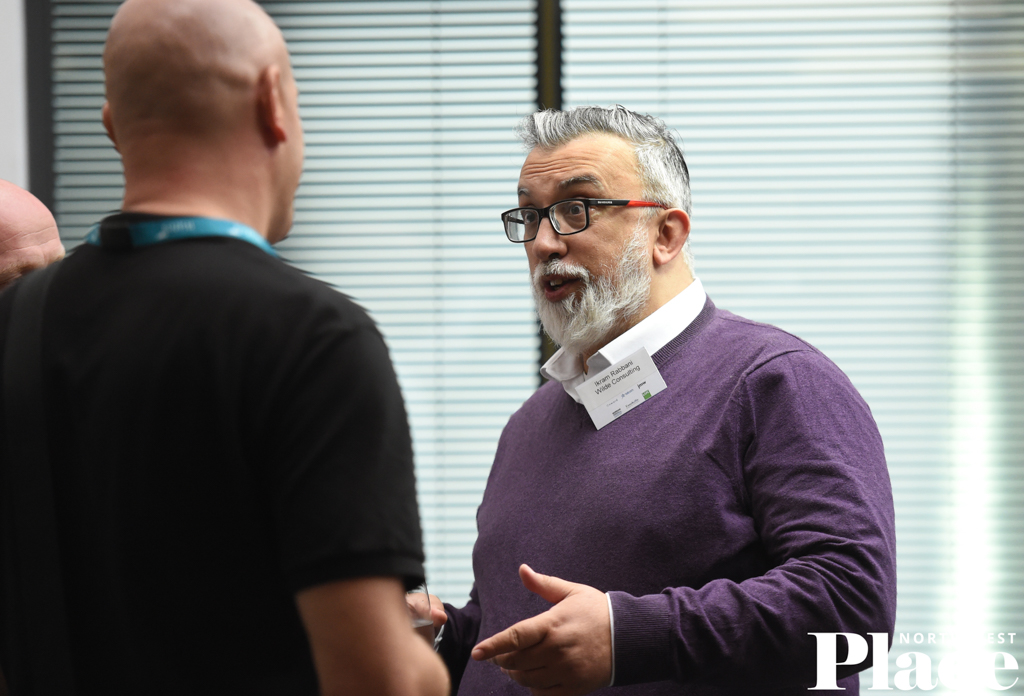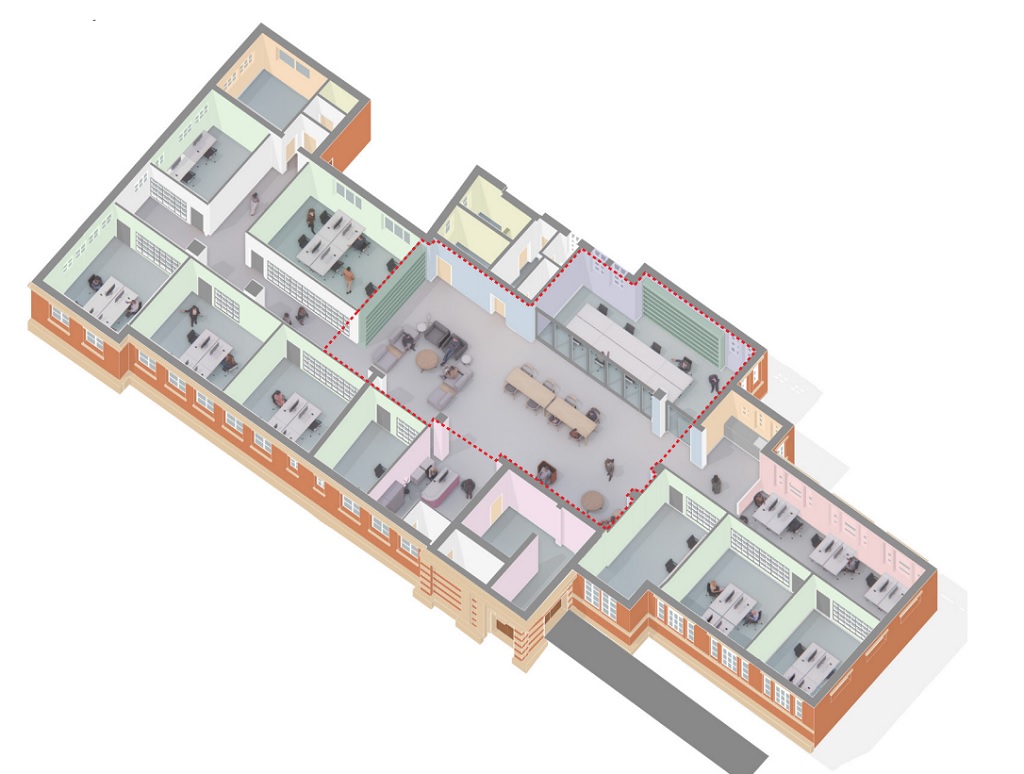Event Summary
Greater Manchester Development Update | Photos, slides, and summary
What’s the secret to keeping up Greater Manchester’s development momentum amid unprecedented levels of devolution? That question was asked at Place North West’s sold-out Greater Manchester Development Update on 7 September.
Sponsored by Onward Homes, Telcom, JMW, Morgan Sindall, Euan Kellie Property Solutions, and LUC, the event was held at the Science and Industry Museum in Manchester. With nearly 300 people in attendance, the event was hosted by Dan Whelan, senior reporter at Place North West.
Dealing with growth
“Building a city is never finished,” said Shelagh McNerney, head of regeneration for the Eastern Gateway at Manchester City Council, as she delivered a presentation. “Every image in our photo library is out of date after a few months.”
She said the population of the city centre will top 100,000 in the next five years, there will be 65,000 jobs there by 2046, and 800,000 square feet of office space is under construction.
“There are no areas of the city with low demand for housing,” she added, saying 36,000 homes, including 10,000 affordable, will be needed by 2032. “Families and older people are staying in the city centre for longer and the number of 38 to 49-year-olds is expected to double.”
But she gave a stark description of the inequalities that exist, citing council research that says 40,000 households have less than £30 of disposable income per month.
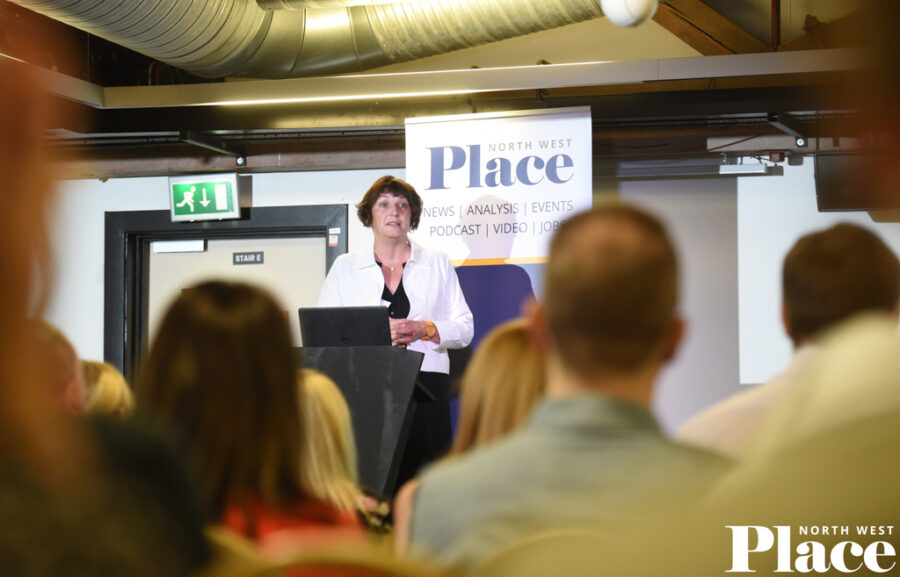
Shelagh McNerney, head of regeneration for the Eastern Gateway at Manchester City Council, gave an informative presentation at the start of the event. Credit: PNW
Success stories
McNerney used Ancoats, in her Eastern Gateway remit, as an example of excellent regeneration, labelling it the ‘coolest neighbourhood’. She added: “It’s important we finish Ancoats. It’s symbolic.”
She went on to mention burgeoning developments at Holt Town, close to the Etihad Stadium, acknowledging it’s a place even some locals haven’t heard of beyond its tram stop. “There is room to grow here,” she said. “The renewal of the city for future generations has only just begun.”
Coping with demand
Louise Emmott, founder and managing director of Kingsdene estate agency, said: “The demand to live in the city is unbelievable. It’s driven by students; so many want to live in the city but they are taking up residential apartments as we don’t have enough student accommodation.”
She said the cladding problem was also impacting supply and the combined impact was driving up rents.
Meanwhile, Alex Russell, chief executive of developer Property Alliance Group said: “It is pretty challenging to build at the moment. Since this time last year construction prices have gone through the roof. At our Renaissance scheme where we should be building 300 houses opposite Harvey Nichols, prices went from £220/sq ft up to £300/sq ft in two or three months. Add to that you have interest rates going up.
“There is a load of money waiting to be deployed in Manchester and Salford – everyone is too nervous to be the first to push the button,” Russell continued. “The positive news now is all the funders are starting to take a longer-term view. Where are the yields going to be two years from now?”
Kurt Partington, head of regeneration for Salford City Council, added: “Nobody wants to rein back. What we need to do is have clear visions in multiple areas of the city where we can take the opportunity.”
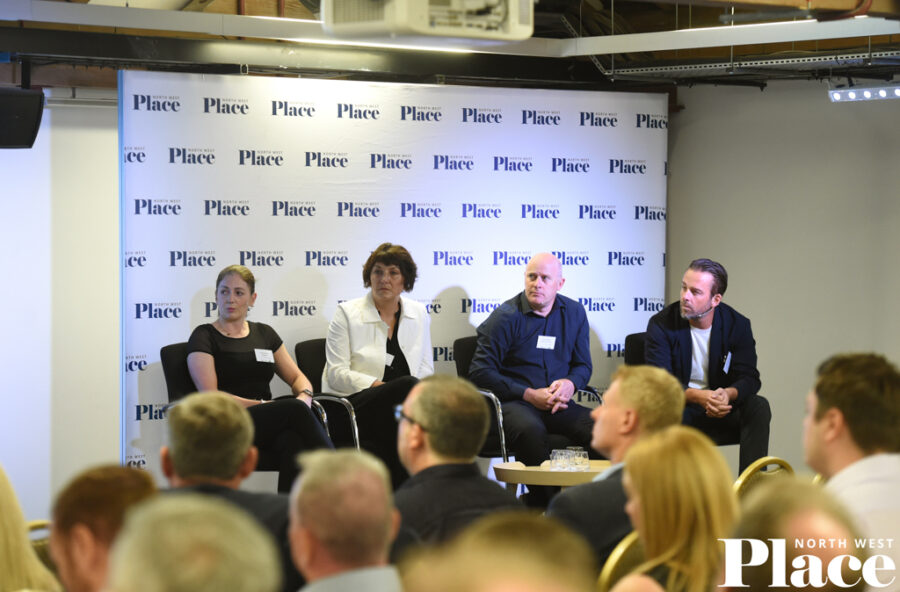
From left: Kingsdene’s Louise Emmott, Manchester City Council’s Shelagh McNerney, Salford City Council’s Kurt Partington, and Property Alliance Group’s Alex Russell. Credit: PNW
Sky high or low rise?
Emmott said the demand for high rises showed no sign of abating: “It’s the amazing views and the amenities they provide, but many more families want to stay in the city and they don’t want an apartment. I can sell a three-bed town house quicker than a three-bed apartment.”
McNerney added: “We need more of everything. We focus on new-build but we need just as big a look at long-term maintenance of everything that’s being built.”
Later in the morning, Sandy Livingstone, executive director of property for Onward Homes, said: “As a housing association we have challenges across Greater Manchester – addressing a dearth of affordable housing, building homes that are affordable to rent and affordable to live in, and we also have to address the quality of existing housing.”
Planning woes
The well-documented shortage of council planning officers, and the overall politics of planning, were hot topics.
Ellie Philcox, director at Euan Kellie Property Solutions, said Greater Manchester’s authorities were working towards a common goal of quality development. However, she thought public confidence in planning policy and the planning system was at “an all-time low”.
“I think we’re in a period of uncertainty and that will continue up to the next general election,” she said.
She also said her team would alter their client strategies depending on which local authority they were dealing with, as each had its own style and process.
Howard Lord, managing director of CERT Property, added: “Two things we want are clarity and consistency and Greater Manchester is giving us that more than ever before. There is a very clear framework.”
On the subject of delays, Rebecca Coley, head of planning and development at Trafford Council, said: “We are spread incredibly thin and even throwing money at the system is not going to work because you can’t generate professionals to work in local authorities. You can’t change local authority pay grades. The system doesn’t let you do that.
“Trafford is an affluent borough but we are incredibly low-funded. We achieve a lot with what we’ve got, but that does lead to not giving the depth and focus you want. There is a passion though with people delivering for the communities they serve.”

From left: Place North West’s Daniel Whelan, EKPS’s Ellie Philcox, CERT’s Howard Lord, and Trafford Council’s Rebecca Coley. Credit: PNW
Fees or famine?
On the subject of planning fees being ring-fenced, Coley said the majority of applications in her borough were for domestic extensions: “A £206 fee for a house extension doesn’t go anywhere near covering the cost. There are too many ‘wrong’ fees that are not going to help us.”
Political pressure
Philcox said: “We are always very conscious when starting on a project, of thinking of how things might pan out in terms of the planning programme and where you might end up within the political cycle timing-wise at planning committee.
“Decisions on planning have become increasingly politicised. That’s something to be aware of in the next year or so.”
Powerful towns
“Looking to the future, the big issue we’re trying to unlock is related to productivity,” said Neil Eccles, head of innovation at Rochdale Development Agency, as he detailed how they were encouraging business growth and better transport. “A study found Manchester grew three times faster than Rochdale, and Salford and Trafford grew twice as fast, and there’s almost this twin-speed economy here.”
Lynne Ridsdale, chief executive of Bury Council, is also focusing on growth. She said: “It is about economic prosperity for our residents. We have completely recast our community strategy and reset our ambition with a twin track approach. We want faster economic growth in Bury than the national average by 2030 and we want lower than national averages of deprivation.”
Sabine Dunstan, development manager for Capital & Centric, highlighted the repurposing of the Wigan Civic Centre Civic into a town centre workspace – a new offering in that location. She said this has presented its own challenges of flexibility, ensuring the tenants – whoever they may be – get what they need.
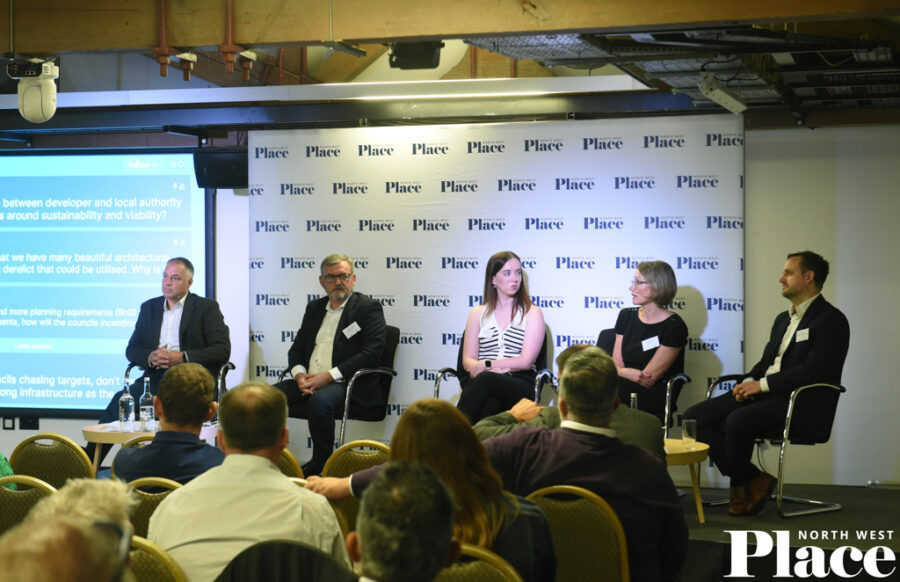
From left: Muse’s Steven Knowles, Onward’s Sandy Livingstone, Capital&Centric’s Sabine Dunstan, Bury Council’s Lynne Ridsdale, and RDA’s Neil Eccles. Credit: PNW
Important identities
Steven Knowles, director of development management at Muse Places, said: “We are working in five boroughs in Greater Manchester. What we are constantly challenging ourselves with is how do we create the place that we, and the community, are proud of in 10 years’ time.”
Ridsdale said: “The point of developing is the strength through difference. The power of towns is to grasp that unique identity and turn that into sustainable growth. Across our six townships, a big part of the strategy is to cement that difference and use that as a way of driving faster growth in a series of smaller scales rather than one size fits all.”
Dunstan said: “Towns play a really key role in facilitating sustainable development as a lot of the regeneration is on brownfield sites and by providing this infrastructure in town centres you are encouraging sustainable behaviours. Town centres can be their own ecosystem where people can do everything they want.”
Asked if development could be both speedy and sustainable, Salford City Council’s Partington said: “It’s ludicrous to suggest pace is not sustainable. We are not at the point where we can’t kick back if a development is not of a quality.”
Development also cannot be a cut-and-paste endeavour. Panellists said every place should be treated independently. Knowles said everything from heritage and funding to the local authority view had to be considered, adding: “The Muse approach to regeneration is that we take a long-term approach. We look at what the need of that town is and we go out to the community using our knowledge and our partners’ knowledge. For example, what Prestwich will be will be completely different to what Stockport is.”
With regard to whose responsibility it was to provide affordable housing in town centres, Onward’s Livingstone said: “We are there to support local authorities. There is need and difference across the boroughs. We need not to recreate the mistakes of the past. To service a community you need to retain the older people. We need to bring families back in. The quality of placemaking is high to accommodate all those groups.”
Town transport
While getting transport links right to get people into the city centre is widely acknowledged, Knowles made the point that some of those who choose city living may actually be working in the towns. Using Stockport Exchange as an example, he said: “It’s a 10-minute train journey to the middle of Manchester. You think that people are going to take the opportunities in Manchester city centre but what’s happened is we’ve created a business district because people have recognised they can come the other way.”
Reviving retail
Dunstan said: “To get the people there you need high-quality homes and workspace and if you’ve got that then retail will be successful.”
Eccles said: “It’s not just about retail, it’s about the leisure side of things. We are putting a big investment into culture and placemaking, looking at theatres and different elements. Coming out of the city centre, what’s our offer?”
Singing from the same hymn sheet
The ‘phrase of the day’, repeated throughout all the panel discussions, became “we’d rather have a vacant site than build some crap”.
CERT’s Lord said: “We are blessed to be in a profession that leaves a legacy, which shapes the built environment, so I’d rather get it right for communities today, but also the future aspirations of that community.”
Slides
Shelagh McNerney’s presentation
What’s next?
How are robots changing construction? What’s the latest on buzzy graphene creation Concretene? What smart tech exists right now that you can use to optimise your buildings? Stay ahead of the curve. Book your ticket to our Innovation in Property conference on 21 September.
Click on any image to launch gallery


